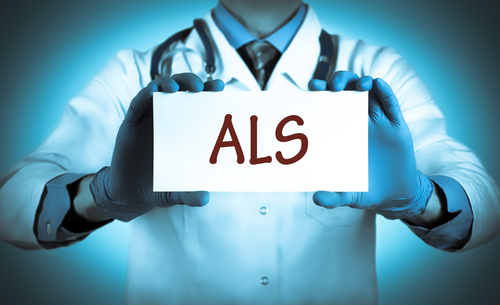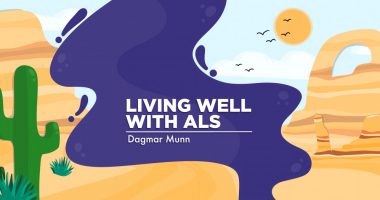Right to Try vs. Right to Say No: An Open Letter to Lawmakers

Dear Congress,
The recently enacted federal Right to Try Law (RTT) is really a “Right to Ask” law. And, for the pharmaceutical companies, it’s a “Right to Say No.”
Which they certainly almost always will.
Case in point: BrainStorm Cell Therapeutics pre-emptively announced that NurOwn, its ALS stem cell treatment candidate, will not be made available under RTT. The company cited in a June release a lack of funding alternatives for patients unable to afford NurOwn on their own.
Other therapy developers may well follow suit for a host of reasons, such as:
- An unsupervised adverse effect, risking future FDA approval.
- Diversion of resources from the approval process.
- Inadequate assets to manufacture and distribute the requested therapy.
- Pharmaceutical companies cannot market any medication until it’s been FDA-approved, so their only compensation may be reimbursement of cost. They may be reticent to share the true manufacturing cost to avoid jeopardizing future market value.
- Investor concerns.
In response to that dynamic, what do we do?
- Hold our breath (a precarious choice, given ALS), hoping that an oxymoronic philanthropic pharma company will emerge?
- Leave the U.S.? Genervon, whose investigational medication was stuck in a regulatory quagmire, has distributed its formulation abroad. “Genervon can legally export the investigational drug GM604 to physicians treating ALS patients in 35 countries under various special access programs,” the company states on its website. And, it adds: “A broad range of ALS patients from around the world have been treated with GM604.”
- “Roll our own?” In the case of GM604, since it’s an endogenous human, neural-regulating signaling peptide, out of complete desperation, can we have this peptide synthesized and begin self-trialing on our own? Plenty of peptide synthesis labs are around. Universities with spare synthesis capacity offer services via Science Exchange, an online research market.
- Tumble the actuarial dice and wait out a full Phase 3 clinical trial, followed by a traditional new drug application approval — which would have a combined average duration of 3 1/2 to four years — betting that our survival will defy the disease’s cruel math?
I believe a surer, and far faster, path is potentially available.
In 1992, in response to HIV, the FDA instituted its Accelerated Approval Program (AAP) to allow for earlier approval of medications that treat serious conditions and that fill an unmet medical need. Clearly, ALS fits both criteria. Since 1992, the FDA has granted accelerated approval to more than 100 medications, according to the Center for Drug Evaluation and Research, so the action has precedent. The conditions that medications were indicated for include HIV, various forms of cancer, leukemia, tuberculosis, and Crohn’s disease. ALS ranks equal to, or above, any from that list in terms of dire prognosis, time-to-mortality, and a dearth of meaningful treatments.
With that as a backdrop, I suggest the following:
- Modify the FDA’s authorizing laws to allow any ALS therapy, having passed a Phase 2 clinical trial, to be immediately eligible for AAP.
- Require that the FDA proactively consult with entities developing ALS medications prior to the commencement of a Phase 2, thereby establishing an agreed-upon pathway for AAP.
- Jettison the hackneyed elements of the clinical trial process, bringing it into the 21st century.
- Adopt a methodology for faster, less expensive, and more accurate trials. Specifically, employ state-of-the-science predictive algorithms and data enrichment tools. This will reduce, or even eliminate, the need for a placebo group while reducing the number of participants required to achieve the FDA’s required measure of statistical significance.
- Make it clear to the FDA that terms like “expedited” and “accelerated” mean what they imply: speed. Add transparent, patient-relevant, disease-specific metrics to their charter, and performance reviews.
Anticipating your concern that systemic change may increase the risk for negative side effects or other unanticipated outcomes, may I ask what side effects you are most worried about? Partial paralysis? Choking? Respiratory distress? Inability to talk? Death? We already have all that. Are you fearful that maybe we’ll get worse? We get worse every day. As for unanticipated outcomes, having ALS is the epitome of the worst unanticipated outcome ever. We understand the risks well. In the grand scheme of things, the risk of doing nothing is devastating.
I realize that my analysis and suggestions may oversimplify a complex situation. That is where you, as lawmakers, come in. Purportedly, as evidenced by your elected office, you are among our country’s best and brightest. Plus, you have access to subject-matter experts. In short, you possess all the tools. PLEASE FIX THIS!
The tragic irony is that this plea comes at a time when ALS awareness has never been more pronounced. The sad reality is that, in the aftermath of an unprecedented display of hope and compassion, the current guardianship of that trust offers none for those struggling today, or soon to be struggling tomorrow.
To wait on any treatment of promise means certain death to thousands of people. To act means giving all of us a puncher’s chance.
***
Note: ALS News Today is strictly a news and information website about the disease. It does not provide medical advice, diagnosis, or treatment. This content is not intended to be a substitute for professional medical advice, diagnosis, or treatment. Always seek the advice of your physician or other qualified health provider with any questions you may have regarding a medical condition. Never disregard professional medical advice or delay in seeking it because of something you have read on this website. The opinions expressed in this column are not those of ALS News Today or its parent company, BioNews Services, and are intended to spark discussion about issues pertaining to ALS.







Comments
Barbara McLean
As a newly diagnosed ALS patient, I will not be around when any cure is found, will never see my grand children, never see my sons get married. I believe if the persons who are making these decisions was diagnosed with ALS or one of their family members was diagnosed, they would feel differently. Also I have familial ALS, so now in addition to my family watching me suffer, they have to worry if they will the next one to come down with ALS or if their children will be next. I watched my Mom and her sister suffered through this disease. It is horrible. You are trapped in your body, everything is taken away from you - your independence, your family, your ability to eat, breath, walk, talk, you become less than an infant totally dependent on someone else to care for you 24 hours a day. Financially it is a nightmare also. What do we have to lose? We are willing to try anything. It is the one disease you cannot do anything to get better - it doesn't matter if you have always been healthy, it doesn't matter if you try to eat healthy, it doesn't matter that you never smoked, never drank alcohol, or that you avoided drugs, it doesn't matter what exercises you do. I always believed that as long as there was life there was hope. But now I realize there is no hope if you have ALS.
syd
unfortunatelly, you are absolutely right.
Charlie
A very interesting and helpful article from Rick. Full of facts and useful information and very practical.... which is the best approach as it avoids the fanciful dependence on the unhelpful, irrational, impractical and non-interventionist approach of the Fairy God Father aspect.
COLIN CLARK
My approach is the same , go after the law makers .
The Health Ministers of each province , the Federal Health Minister , these 11 should get the same email from every ALS patient and their family members in Canada , that are effected by this disease .
Perhaps after the Trudeau GOVERNMENT just spent 4 1/2 billion dollars on a 65 year old pipeline and theres another 4 1/2 billion to put it in place and fix the old pipe line . 10% or at least 5% could go towards the support of the research and clinical trills from around the world trails like the BrainStorm and NurOwn trails that the US put on and invited Canadians to partisepate in .
I would rather see Canada Health take a proactive and supportive role rather
that do nothing.
Charlie
The Canucks have not done anything with Radicava as its cost is enormously high. Relatively little cost compared to the oil pipeline, however.
They have gone the usual 'political committee' route ie have an in-depth survey on its 'patient expectations' which will take months to a year or more to evaluate and they will keep their fingers crossed that something very cheap and cheerful like Pimozide is shown to have overall better results, and which they can approve for use.
Radicava won't help many pALS ie those who have had symptoms for 15 months or more so they are already working on defining the categories of patient for whom it would never be subscribed.
In Canada the government situation is this: there are no votes in dealing with ALS, as almost all people will not survive it. There are lots and lots of votes in oil line and related jobs.
In the USA the approach is: sell as much to as many people who can afford it as quickly as possible as there is money to be made, and that includes from pALS who have had over 15 months of symptoms. Never mind about efficacy...sell sell sell.
Jim Peckenpaugh
I don't believe the Boondoggle Radicava took very long to be approved by FDA. It seems they went by a Japan study that has not reported any patient follow up. Unless I'm missing something, I have read nothing about any good patient results. Why doesn't the ALS Association investigate why there has been no progress report on the Japan Radicava patients??
Charlie
You are right,Jim.
I feel pretty confident that the reason we hear nothing on local efficacy of Radicava is that it isn't effective to other than a very small number of patients.Additionally there is nothing published as to how long the treatment with Radicava continues. Presumably it continues until the patient is bankrupt.
In the Far East the treatment was originally found to extend pALS life expectancy by around 30%. In no way can Radicava or anything else be regarded as an effective treatment if it simply prolongs a person's torture.
Adrianne Taubman
has this actually been sent to all the
congress? If not, why not? Can anyone get it publicity?
this is excellent thinking. thank you for that.
Rick Jobus
I invite you to send it to your representatives.
Bob Berman
Bob Berman says:
A great article! The Right to Try law is useless, if the manufacturer will either not provide access to its drug or procedure, i.e. BrainStorm, or if they do, their price is prohibitive to all but a very few! I knew this from the time the President signed the law and have been telling the same to the Goldwater Institute who initiated the Right to Try approach.
What could work is if the federal government would supplement the excessive cost of any drug or procedure which has shown it is safe in a successful Phase 2 trial, and shown some efficacy. Since ALS and other rare fatal diseases make up a very small percent of our US population,such a governmental cost would appear to be within reason. Then it would also allow Pharmaceutical companies to make some return on their investment to develop drugs with potential to help cure or at least offer remission. If some of these drugs or procedures, i.e. BrainStorm, show promise without having to proceed through an expensive and time consuming Phase 3 process, what a blessing that would prove to be. This main article, and supplemental idea, needs to be presented to the President and our Congress.